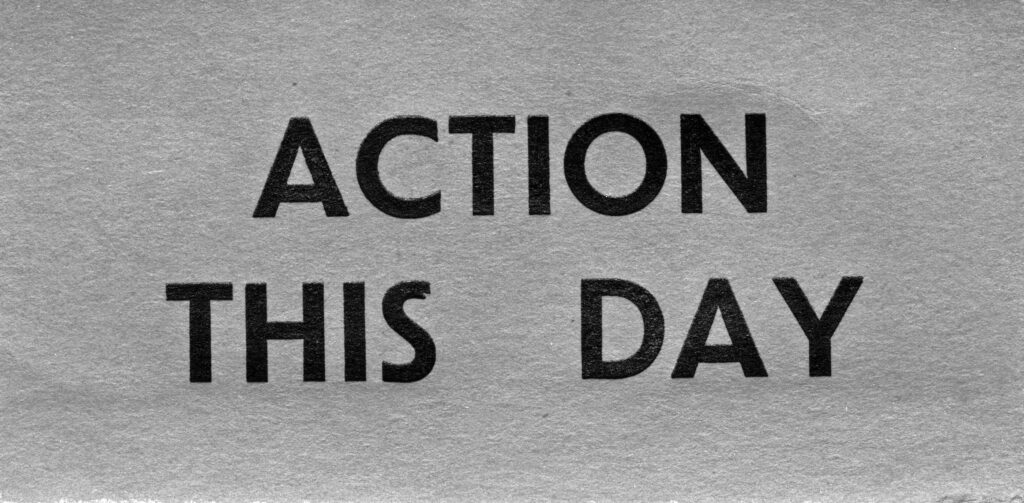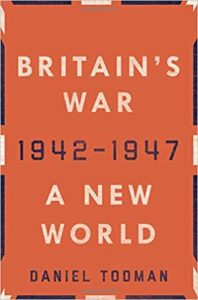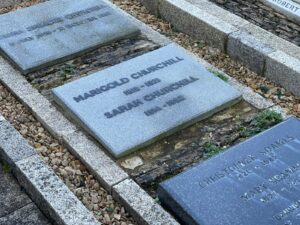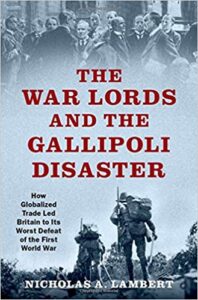Finest Hour 196
Action This Day – Spring 1897, 1922, 1947

April 28, 2023
Finest Hour 196, Second Quarter 2022
Page 42
By Michael McMenamin
125 Years Ago
Spring 1897 • Age 22
“I Am a Liberal in All but Name”
While bored with his military life in India, Churchill was far from being the “mere social wastrel” his father had predicted. In fact, young Winston was acutely conscious of the limits of the military education he received at Sandhurst, compared to the liberal education offered at Oxford and Cambridge, and was determined to make up the deficiencies.
A 31 March 1897 letter to his mother records Churchill’s breadth of study: “Many thanks for your letter of the 11th and for the two vols [of the] Annual Register & two Wealth of Nations—all of which have been safely received…. Since I have been in this country I have read or nearly finished reading (for I read three or four different books at a time to avoid tedium) all Macaulay (12 vols) all Gibbon (begun in England 4000 pages), The Martyrdom of Man—Modern Science and Modern Thought (Laing), the Republic of Plato (Jowett’s Translation), Rochefort’s Memoirs, Gibbon’s Life & Memoirs & 1 Complete Annual Register on English Politics. I have hardly looked at a novel. Will you try and get me the Memoirs of the Duc de Saint Simon & also Pascal’s Provincial Letters—I am very anxious to read both these as Macaulay recommends the one & Gibbon the other.”
The Annual Register was a detailed year-by-year parliamentary history first edited by Edmund Burke, which Churchill studied because he wanted to develop “a complete scheme of political thought which enabled him to present a sincere and effective front in every direction according to changing circumstances.” He described for his mother how he was trying to do so:
The method I pursue with the Annual Register is [not] to read the debate until I have recorded my own opinion on paper of the subject—having regard only to general principles. After reading I reconsider and finally write. I hope by a persevering continuance of this practice to build up a scaffolding of logical and consistent views which will perhaps tend to the creation of a logical and consistent mind.
A week later, Churchill wrote another long letter to his mother on political issues:
There are no lengths to which I would not go in opposing [the Conservatives] were I in the House of Commons. I am a Liberal in all but name. My views excite the pious horror of the Mess. Were it not for Home Rule—to which I will never consent—I would enter Parliament as a Liberal. As it is—Tory Democracy will have to be the standard under which I shall range myself.
100 Years Ago
Spring 1922 • Age 47
“Nearer to the Leadership of the Country”
While the Irish Parliament voted on 8 January 1922 to accept the peace treaty that ended the AngloIrish War and created the Irish Free State, violence and murder along the border with Northern Ireland and in Belfast continued. IRA extremists loyal to Eamon de Valera, who opposed the treaty, targeted Protestants, while the Protestant “B Specials” targeted Catholics. On St. Patrick’s Day, de Valera promised “to wade through Irish blood…perhaps the blood of some members of the government” if the people voted to ratify the treaty. Churchill denounced this in the House of Commons as “the true spirit of madness.” With the fate of the Irish Free State Bill still hanging in the balance in the British Parliament, Churchill invited Free State leader Michael Collins and Northern Ireland leader James Craig to London.
Churchill prepared the first draft of an agreement between North and South and spent two days mediating between the two sides until agreement was reached at 8 pm on 30 March. Craig agreed to reorganize the Belfast police so that those keeping law and order would consist of equal numbers of Catholics and Protestants. Collins agreed to suspend all orders for the IRA to attack. For his part, Churchill pledged half a million pounds to be spent to help the poor in Northern Ireland. The Irish Nationalist MP Joseph Devlin, who in the past had been critical of Churchill when he was Secretary for War, was quick to praise him “for the inspired idea which moved him to call this conference together” and for “the superb tact and ability with which he has conducted all those Irish matters since he has been entrusted with this task.”
The Irish Free State Bill became law the next day. A former Private Secretary to the King wrote to a friend that day: “I think this exercise of judgment brings [Churchill] nearer to the leadership of the country than anyone would have supposed possible. It will modify a great many views.”
De Valera denounced the settlement and urged his followers to resist, declaring both the Free State and Northern Ireland governments to be illegitimate. The violence in Ireland continued in Belfast as well as the South. Churchill feared that a civil war in the Free State was inevitable, and he began shipping arms and ammunition to the Free State troops. On 14 April, a large armed force of IRA extremists occupied the Four Courts in Dublin. That same day, despite overwhelming support for the treaty in southern Ireland, de Valera proclaimed that the people “have no right to be wrong.” On 16 April, Collins was attacked on a Dublin street. The Irish Civil War had begun.
75 Years Ago
Spring 1947 • Age 72
“Too Many Officials”
When the Attlee government in March introduced a bill making conscription for eighteen months mandatory for men between the ages of eighteen and twenty-six, Churchill spoke in favor, but he could not resist tweaking the government for its opposition to conscription in May 1939, where “the whole effort of their party was designed to make every preparation for defence of the country and resistance to Hitler so unpopular that it was politically impossible.” He did not spare the Liberal Party either, which had also opposed conscription in 1939. Churchill observed that the Liberals had opposed conscription “before the First World War…and were against it after the First World War.” Therefore, Churchill continued, while there was a well-known maxim that “Consistency is the last resort of feeble and narrow minds,” he would be content with “paying this well-deserved tribute to their rigid and inflexible consistency.”
Attlee continued to give Churchill ample opportunity to make fun of him when, in a speech to the Scottish Trades Union Congress on 24 April, the Prime Minister called Churchill “the most disastrous Chancellor of the century,” because he “brought us back on the gold standard [and] inflicted untold misery on the people of the country.” Churchill promptly wrote a reply in the Daily Graphic in which he helpfully pointed out that while he was Chancellor, “the cost of living declined by at least 18 points while money wages remained stable. This represented a great benefit to the working people of this country.” As for the gold standard, Churchill said he had acted on advice from a committee appointed in 1924 by his Socialist predecessor as Chancellor, Philip Snowden, a committee on which Attlee himself had been a member. To rub more salt into the wound, Churchill then quoted Snowden’s December 1926 article in the Financial Times: “All the facts therefore do not support the impression that the return to gold has been detrimental to industry. The Bank Rate has not been raised; unemployment has not risen; real wages have not fallen; and the price level has been fairly well-maintained.” Churchill continued, “So far from causing what Mr. Attlee calls ‘untold misery,’ the facts as I have said show that while I was Conservative Chancellor of the Exchequer the real wages of our workpeople steadily and substantially increased.”
Attlee had also accused Churchill of attacking the Civil Service. Churchill called it “a deliberate distortion. What I said, and what I repeat, is that we have now too many officials compared to the number of wage earners engaged in productive industry. I have the highest regard for our civil servants…it is no fault of theirs if they now are made too numerous; it is the fault of this Government, that is constantly heaping on them fresh tasks, many of which are needless and futile….Mr. Attlee must feel himself very hard pressed to have to go back nearly a quarter of a century to find excuses for the mismanagement and blunders of which he evidently feels his Government guilty.”
Subscribe
WANT MORE?
Get the Churchill Bulletin delivered to your inbox once a month.






